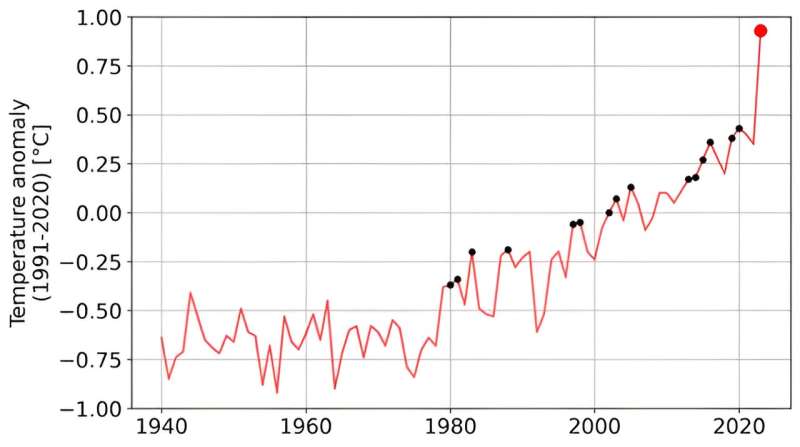
The global mean temperature in September 2023 was 0.93° C warmer than the 1991–2020 average, breaking the previous record set in 2020 by a margin of 0.5° C. This was the largest margin by which the previous monthly record has been broken in any calendar month.
The unprecedented jump in average temperatures has puzzled scientists. Some scientists have argued that the half-degree margin between September 2020 and 2023 can be explained by ongoing climate change and natural climate variability, such as the change of a three-year La Niña into an El Niño.
Others have suggested that the Hunga-Tonga volcanic eruption in January 2021 or the reduction in sulfur emissions from shipping in 2020 may have contributed to the record temperatures of recent months.
A study published in npj Climate and Atmospheric Science has compared climate model-simulated record margins with observations.
It found that the observed record margin of 0.5° C is a very rare event in model simulations spanning from 1970 to 2050. Similar records occur in only about once in a hundred simulations.
The study estimated that the contribution of volcanic eruptions and reductions in sulfur emissions to the record margin could be around 0.1° C, which would significantly increase the likelihood of the September record.